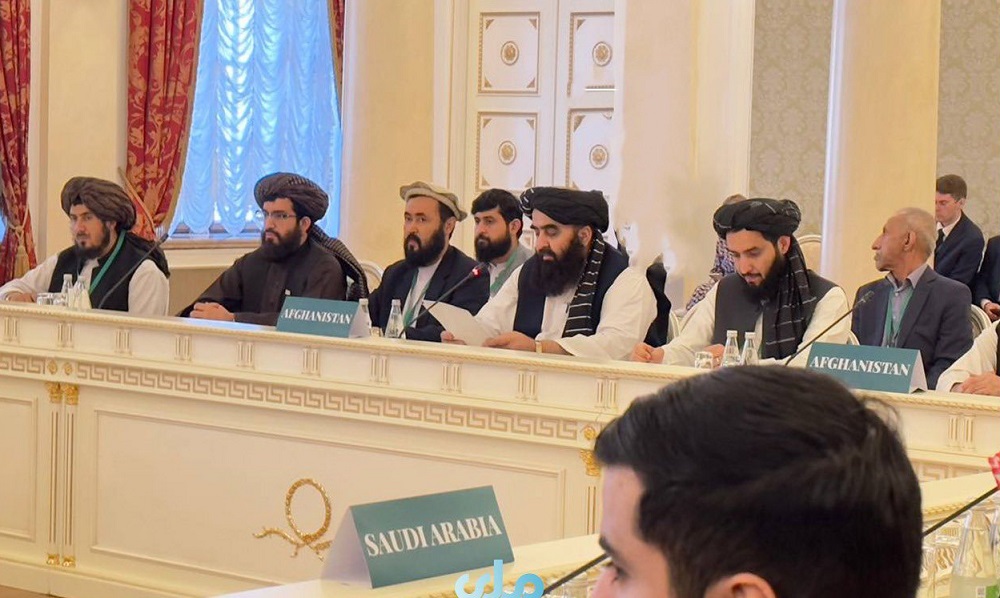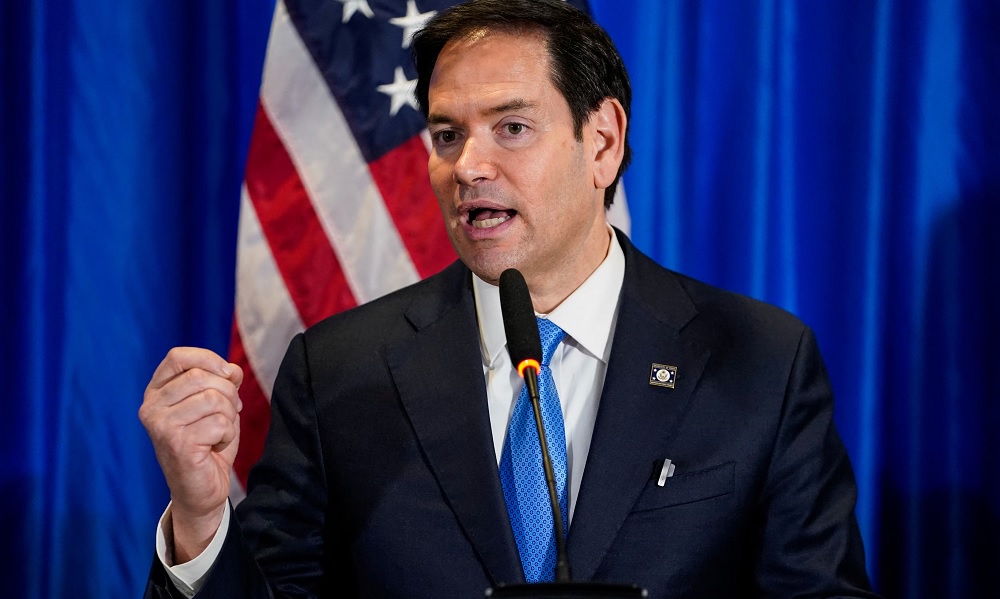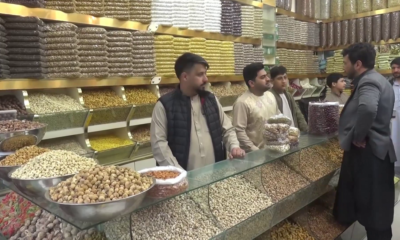Latest News
No foreign prescription has solved Afghanistan’s problems, Muttaqi tells Moscow format meeting

The meeting of “Moscow Format” with the presence of the delegation of the Islamic Emirate of Afghanistan (IEA) and the representatives of the countries of the region started on Friday in the city of Kazan, Russia.
In the meeting, Acting Foreign Minister Amir Khan Muttaqi said that no foreign prescription has solved Afghanistan’s problems in the past 45 years.
Muttaqi said that Afghanistan is ready to interact positively with every country based on common legitimate interests, added that: “We hope that all countries will use this opportunity considering their national interests.”
He added: “Now more than ever, the opportunity for the implementation of the North-South Trade Corridor has been provided. It should also be important for countries in the region to know how to protect their interests and take advantage of the opportunities.”
In the meeting, the representatives of the neighboring countries also talked about Afghanistan and asked the United States to lift the sanctions on Afghanistan.
The special representative of China said that in the last two years, the Afghan government has taken important steps in the security, economic and social areas.
He also said that the United States should lift the sanctions against the people of Afghanistan.
“The travel ban of some Afghan government leaders should be lifted and they should be given the opportunity to participate in regional and international meetings,” he added.
The special representative of Uzbekistan said that it is very good that Afghanistan will become part of the “North-South Corridor”.
He said: “Big projects should be implemented in Afghanistan, including the Surkhan-Puli-Khumri power transmission, and other projects in order to fully revive the national economy of Afghanistan.”
He also welcomed the return of the Asian Development Bank (ADB) to Afghanistan.
According to him, Western countries present a negative image of Afghanistan.
“We continue our interaction with Afghanistan and we agree with China that the representative of Afghanistan must be present in such meetings,” he said.
Talat Beg, the special representative of Kyrgyzstan, said: “The current government of Afghanistan has good achievements such as keeping the value of the currency stable, controlling inflation and fighting corruption. Kyrgyzstan hopes for a peaceful and stable Afghanistan. We want friendly relations with Afghanistan.”
Representatives of neighboring countries asked other countries to interact with Afghanistan.
The special representative of the United Arab Emirates (UAE) said that they want interaction and cooperation with Afghanistan.
“We sent our ambassador to Afghanistan a week ago. We must be present in Afghanistan. This shows that we want interaction and cooperation with Afghanistan. We want a peaceful and stable Afghanistan,” he said.
The special representative of India also said that they have maintained their assistance and relations with Afghanistan.
“We have invested about three billion dollars in Afghanistan and 35,000 students have entered Indian universities,” he said.
He also praised the Islamic Emirate’s fight against drugs and terrorism and added: “Our priority should be humanitarian aid.”
According to reports, representatives of ten countries, including China, Pakistan, Iran, India, Kazakhstan, Kyrgyzstan, Tajikistan, and Uzbekistan, participated in the recent meeting of Moscow format, and representatives of Saudi Arabia, United Arab Emirates, Qatar, and Turkey participated as observer members.
The special representative of Russia for Afghanistan has said that there will be no one representing the United States at the Moscow format meeting.
Friday’s session is the fifth gathering of the Moscow format of consultations on Afghanistan. It was created in 2017 on the basis of a six-party consultation mechanism of special representatives of Russia, Afghanistan, India, Iran, China, and Pakistan.
Its first meeting was held on April 14, 2017 with the participation of deputy ministers and special representatives of 11 countries, including the Afghan side.
The main goal is to promote the process of national reconciliation in Afghanistan and the early establishment of peace. The last, fourth meeting, was held in November 2022 in Moscow, without the participation of the Islamic Emirate.
Latest News
Afghanistan’s reconstruction is in the interest of EU: Uzbek president
Mirziyoyev said that many who initially disagreed with Uzbekistan’s policy on Afghanistan are now compelled to recognize its correctness and inevitability.

Stabilising the situation in Afghanistan and its reconstruction are in the common interests of the Central Asian countries and the European Union, Uzbekistan President Shavkat Mirziyoyev has said.
Speaking in an interview with Euronews released Tuesday, Mirziyoyev mentioned that his country’s approach to Afghanistan has always been pragmatic and strategically oriented toward the long term.
“We have never isolated or turned away from our neighbour. We have always believed that Afghanistan’s development is impossible without constructive engagement with neighbouring countries, including Uzbekistan as its closest and most important partner,” he said.
Mirziyoyev said that many who initially disagreed with Uzbekistan’s policy on Afghanistan are now compelled to recognize its correctness and inevitability.
The Uzbek leader also criticized the former regime in Afghanistan for its inability to establish full control over the country’s territory, its unwillingness to engage in dialogue with the opposition, its lack of intent to form an inclusive government. He added that widespread corruption permeated all levels of the former administration.
“The current leadership has managed to stabilise the situation in Afghanistan and redirect its resources toward infrastructure development, including airports, domestic railway networks, and water and energy facilities, as well as toward reducing opium cultivation,” he said.
Mirziyoyev said that Afghanistan should be viewed through “the lens of emerging strategic opportunities.”
“It is critically important to integrate Afghanistan into global economic processes, including through the implementation of infrastructure projects on its territory,” he said.
Expressing readiness to jointly work with the European Union on Afghanistan, he said that the primary task at this stage is to continue to providing assistance in the field of education.
“I am convinced that stabilising the situation in Afghanistan and its reconstruction are in the common interests of the Central Asian countries and the European Union,” he said.
Latest News
Bulgaria brings five people to trial over deaths of 18 Afghan migrants

The Sofia City Prosecution Office brought five people to trial for participation in an organized criminal group, smuggling and the murder of 18 Afghan citizens, its press centre said on Tuesday.
On February 17, 2023, the bodies of 18 illegal migrants, who had apparently suffocated to death, were found on a truck near the village of Lokorsko (16 km north of Sofia).
The indictment states that 52 Afghans were loaded into a truck from the area of the village of Zidarovo, Burgas Region, Bulgarian News Agency reported.
According to the prosecution, two of the defendants saw that the Afghans could not breathe normally because they were pressed tightly together, but they closed the lids of the containers, fastened their seat belts and drove off.
Latest News
US won’t rest until all Americans detained in Afghanistan brought home: Rubio

US Secretary of State Marco Rubio said on Monday that the United States government will not rest until all Americans detained in Afghanistan are brought home.
“The United States is pleased to welcome home Faye Hall. President of the United States’ commitment to the American people is clear — we will not rest until all Americans detained in Afghanistan, and held hostage around the world, are brought home,” Rubio wrote on X.
The news of Fay Hall’s release was announced three days ago by former US special envoy for Afghanistan Zalmay Khalilzad.
She had been reportedly detained in February.
US State Department spokesperson Tammy Bruce told a news conference Monday that the US government’s “highest priority is the safety and security of the American people, wherever they may be.”
-

 Business4 days ago
Business4 days ago36 mining contracts inked over the past year: Mines ministry
-

 Latest News4 days ago
Latest News4 days agoDried fruit market in Herat booms ahead of Eid-al-Fitr
-

 Regional4 days ago
Regional4 days agoPowerful quake in Southeast Asia kills several, Myanmar declares state of emergency
-

 Latest News4 days ago
Latest News4 days agoUS may ask for military equipment left behind in Afghanistan: Trump
-

 International Sports4 days ago
International Sports4 days agoLucknow’s six-hitting machine Pooran justifies top order slot
-

 Latest News3 days ago
Latest News3 days agoMore than 70,000 Afghans returned home in third week of March: IOM
-

 Latest News4 days ago
Latest News4 days agoNegotiations with Afghanistan are the only way forward: Pakistan’s ex-PM Khan
-

 Health3 days ago
Health3 days agoGlobal organizations warn of health crisis due to aid cuts in Afghanistan
























